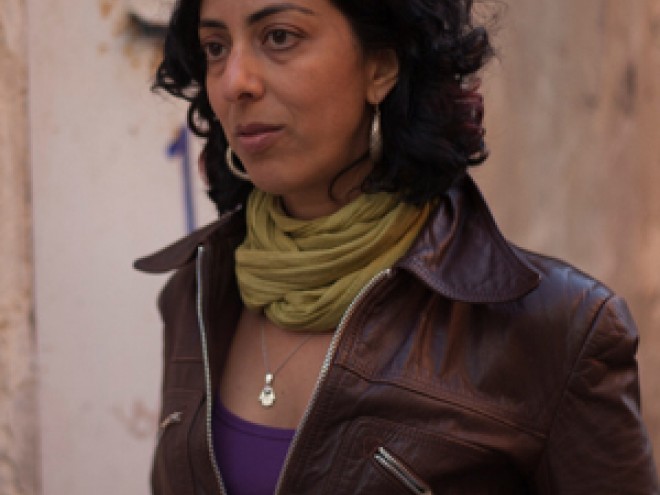In her memoir, The Art of Leaving, Ayelet Tsabari describes growing up as a Yemeni Jew in Israel before embracing a peripatetic lifestyle that takes her far from her neighborhood in Petah Tikva, near Tel Aviv. Sensitive, inquisitive, and restless from the start, she didn’t quite fit into her own culture and didn’t blend into the larger, Ashkenazi-dominated Israeli society. Within these narratives that progress through her youth and middle adulthood, Tsabari conjures lazy days playing with friends, the spicy aroma of Yemini cooking, the feel of warm sand on scattered beaches, frozen Canadian winters, and the altered state of drug-hazed wanderings. Her evocative, unsparing account of the choices she makes and the places — figurative and literal — these decisions take her to is brilliant.
The world of Tsabari and her family is one in which they are the Other: a Yemeni Jew, described in a 1909 Jewish newspaper essay she quotes as “a simple, natural laborer…in a wild, barbaric state.” They are also, more generally, Mizrahi Jews — of Middle Eastern ancestry — which makes for a crowd on the lowest rung of the Israeli social ladder. Tsabari blasts through the stereotypes as she describes her educated father and the many Yemeni and Mizrahi contributions in the humanities and elsewhere, which are increasingly acknowledged and celebrated.
In one of her essays, “A Simple Girl,” Tsabari considers the Mizrahi bimbo stereotype of the freha. She recalls the so-called frehas in her neighborhood, “older girls from the technical high school … who sat on the barricades holding cigarettes with thin manicured fingers, laughing loudly, their bodies bursting from their tight, revealing outfits.” She envied these tough, bold young women, even as she looked down on them.
Tsabari’s reflection on the past lacks any rosy tint, except when she focuses on her beloved father, who died of heart failure when she was ten years old. Leaving his youngest daughter at such a vulnerable age set in motion a series of events that brought her to where she is today. In the first of her book’s three sections, “Home,” she writes, “That moment will be the fork in the road when my future splits in two: what could have happened had he lived and what happened because he didn’t.” The loss of her father and its repercussions are a recurring theme.
Tsabari turns a fond lens on her grandmother, mother, and aunts. In the book’s first essay, “In My Dreams We Hug Like Grown-Ups Do,” she describes them in the kitchen, cleaning after dinner: “They are loud and curvy and strong-minded and effortlessly charming, their curls bouncy or blow-dried or hennaed, their throaty ‘het’ and ‘ayin’ melodic — syllables I swallow, flatten, learned in school to pronounce incorrectly, like an Ashkenazi.”
The book’s other two sections, “Leaving” and “Return,” also contain linked essays that follow the trajectory of Tsabari’s life. In “Home” readers learn of her experience in the army — she was not the most enthusiastic member of the service, it’s safe to say — and in “Leaving” Tsabari describes her travels to the US, India, Canada, Thailand, and (temporarily) back to Israel.
In living on the margins, Tsabari encounters real danger. “Tough Chick,” the first essay in “Return,” describes her assault on a bus in East Vancouver in 2004. The final essay, “The Art of Staying,” focuses on her daughter — like her mother, a “daddy’s girl.” It also describes Tsabari’s determination to unearth the story of her great-grandmother’s immigration to Palestine from the Jewish section of Sa’ada, a walled city in North Yemen near Saudi Arabia. In considering her newborn as well as her great-grandmother, Tsabari comes full circle with her Yemini heritage.
Amy Spungen, a freelance editor and writer, has a BS in journalism from Virginia Commonwealth University and an MA in English from Northwestern University. She lives near Chicago in Highland Park, Illinois.





